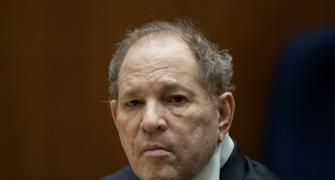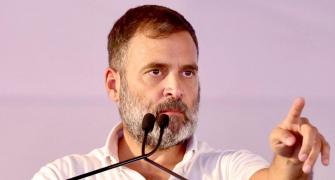Kuldeep Saluja is an angry man. The managing director of Delhi-based Sterling Agro-Industries had exported 10,000 tonnes of skimmed milk powder last year, and was about to invest Rs 70 crore to build more capacity and tap into a buoyant global market.
But the government's decision last week to ban SMP exports has put paid to those plans -- and sparked fresh debate about the wisdom of squeezing agricultural producers in order to protect consumers.
Not only is India the world's largest milk producer, milk powder exports have been a booming business. Total exports ballooned from 4,185 tonnes in 2003-04 to 28,200 tonnes the following year, and 50,510 tonnes last year. This year, the government stepped in when exports were about to touch 65,000 tonnes.
The government's argument is that exports are welcome, but fighting inflation takes priority. Retail milk prices had climbed in the past year from Rs 13 per litre to Rs 16; Mother Dairy, the capital's biggest milk retailer, increased its milk price by a rupee per litre last month. And the price of milk powder has increased from Rs 90 per kg to Rs 125 over the past year.
Finance Minister P Chidambaram, announcing the government's decision on the export ban, argued that the export of milk powder would have caused a domestic milk shortage in the summer, traditionally the lean season for milk production.
The export ban on milk powder, which has come in the wake of similar bans on the export of sugar and pulses last year, has had an immediate impact on the domestic market, with milk powder prices falling from Rs 125 per kg to Rs 120.
The powder producers in turn have reduced what they pay dairy farmers, from Rs 17 to Rs 16 per litre. Prices for ghee (clarified butter) have dropped from Rs 2,150 per tin (of 15 kg) to Rs 2,100. This is before the export ban has been notified; prices are expected to dip further once the notification is issued.
Saluja is not mollified by arguments about tackling inflation. He points out that only 6 per cent of the country's liquid milk production (about 100 million tonnes) is converted into milk powder (yielding half a million tonnes). And out of that, exports account for only 65,000 tonnes -- or about 1 per cent of liquid milk production. "How can that create a shortage?" Saluja asks.
Brijesh Gupta, vice-president of Param Dairy, which exports 2,000 tonnes of milk powder, says: "The government is concerned about prices and inflation; but why does it want to penalise the dairy farmer?"
Milk powder production has been a roaring business in recent years. Production capacity was only 0.3 million tonnes in 2003; that has been raised to 0.5 million tonnes by producers like Sterling and Param, which have invested Rs 500 crore.
Favourable trade winds have also helped. Following supply difficulties in drought-hit Australia and New Zealand, the traditional suppliers of powder in the international market, milk powder prices have increased sharply in world markets, and Indian producers were taking advantage of this to establish themselves as reliable suppliers. Export realisation for them had climbed to Rs 6 per kg more than domestic sales. But all that is now history.







